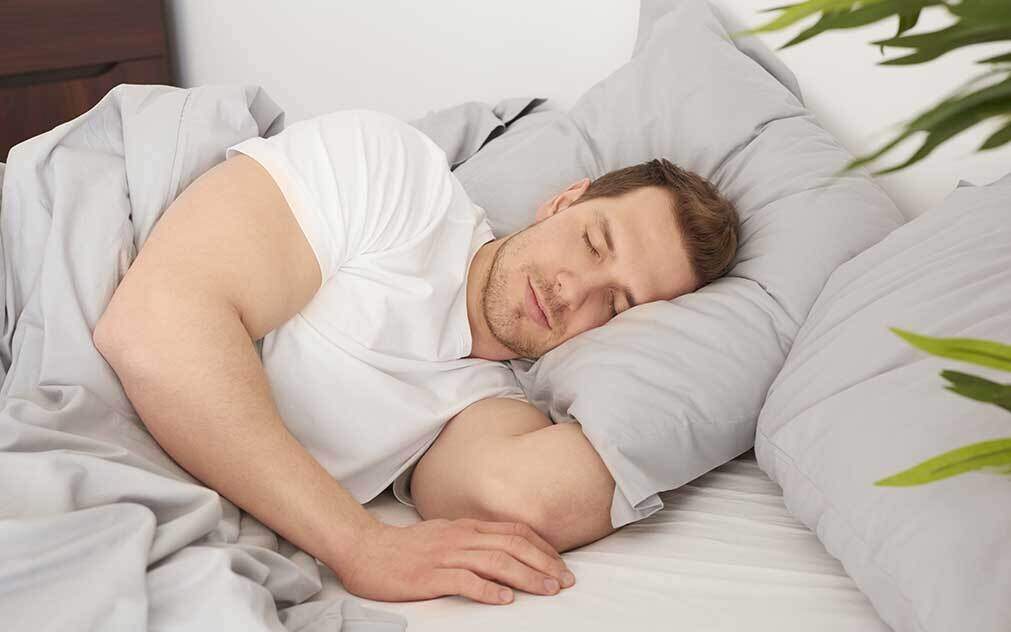Thousands of people struggle with sleeping in some capacity. Whether it’s poor sleep quality, difficulties falling asleep, or frequently waking up during the night, sleeping can be a source of stress for many. In today’s blog, we’re going to talk about why sleeping is important and simple ways you can improve your sleep quality.
Why sleep is important
Many of us know that resting during the night allows our bodies to heal and recuperate, but did you know that it’s also the time our brains clean themselves? Research from Boston University found that while we sleep a special fluid called Cerebrospinal fluid washes in and out of the brain to help rid it of metabolic waste.
What is metabolic waste?
Metabolic waste is the substances that are left over after a metabolic process, such as cellular respiration. Like the waste we produce after we consume food, this cannot be used again by the organism, so it’s typically expelled. Metabolic waste is compounds like sulfates, phosphates, nitrogen compounds, and in the case of our brain, protein beta-amyloid.
Every part of our bodies produces some form of waste, and this waste is expelled in specific manners; our brain is no different. Our brain cells (called neurons) consume a lot of energy, and the waste that they produce from that consumption is spat out and washed away while we sleep. When we don’t get enough sleep, the debris our brain produces can form plaques that are toxic and can lead to the brain not functioning and has been associated with an increased risk of developing Alzheimer’s Disease or other brain disorders.
What is sleep hygiene
Sleep hygiene is the combination of environmental, behavioral, and routine factors that promote quality and undisrupted sleep. All of these factors can be adjusted, and by finding the right blanace, you can improve your sleep quality immensely.
The basics of good sleep hygiene:
- A quiet and comfortable environment. If you are able to, have a dedicated room for sleeping. Doing so will help you relax quickly as eventually your mind will associate the space with relaxation.
- Avoid eating at least 3 hours before bed. It takes approximately 3 hours for your body to digest food; if you sleep right after eating, this can cause issues like indigestion, acid reflux, and poor quality of sleep because your body is trying to digest food while it should be resting.
- Try to avoid watching television, working on the computer, and watching videos on your phone right before bed; these things are mentally stimulating can could make falling asleep more difficult. Additionally, blue light, which is often be emitted from things like smartphone screens and computer screens, can block melatonin, the hormone responsible for making you drowsy. If you’re a person that’s used to falling asleep while you’re watching something on your phone, you can help ween yourself off of it by utilizing a blue light filter while you’re trying to rest.
- Maintain a consistent sleep schedule.
The importance of a consistent schedule
For some, the process of falling asleep can take minutes or even hours. This can be incredibly stressful, particularly if you have things to do the next day. Having an inconsistent sleep schedule can result in things like an increased risk of insomnia and depression.
The key to solving this is to implement a sleeping and waking schedule and follow through with it.
Our brains are inherently lazy, and we essentially have to train them to fall asleep. By implementing a sleep schedule, we are retraining our brains to fall asleep quickly. Here is how it works: Decide how much rest you need; conventionally, it is recommended to get at least 8 hours of sleep. Then once you have a time set, set an alarm, one for when it’s time for you to go to bed and another for when you want to wake up. The key is to get up immediately once your waking alarm goes off. If you are in the habit of hitting the snooze button, place your alarm in a place that requires you to get up to turn it off.
By implementing a schedule and being strict with it, our brains will do what they have to make sure that we’re resting. The first few days will likely be difficult, particularly when waking up, but by forcing yourself awake, you are essentially telling your brain that there are no outs. Sleeping in is not an option. The results for improved sleep by utilizing a schedule will work better if you avoid stimulants like coffee and other caffeinated foods and beverages as they can disrupt your sleep, even if you drink them early in the day.
How BSO Honey helps improve sleep
Taking a tablespoon of BSO Honey before you go to bed can help you fall asleep faster and rest better. The reason BSO Honey helps improve sleep is thanks to the black seed oil. For anyone struggling with insomnia, black seed oil is a natural remedy that can help eliminate disturbance and improve sleep quality. Black seed oil is rich in Thymoquinone, which helps reduce stress and anxiety, helping you relax before bed.
Stop struggling with sleep and get the rest you deserve! Pick up a bottle of BSO Honey today, and start improving your sleep!

